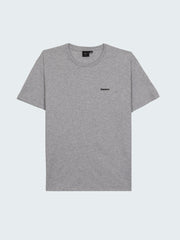After the swim we walked into the rabbit warren alleyways of N’Gor island to find the Surf Camp, where the owner Jesper introduced us to his French-Tunisian wife Soraya and their daughter Mia. Jesper is from Denmark, but fell in love with N’Gor when he arrived a decade ago, took over the dishevelled camp and injected new life into it. He has been a driving force for a much needed financial lifeline of international tourism. The camp now hosts about 1,000 surfers a year and is a leader in the new wave of surf tourism providers on the Almadies Peninsula - a six-mile stretch back on the mainland with 15 quality surf spots.
Mour Mbengue and Kouka Ba, two of Senegal’s best surfers, are instructors at N’Gor Island Surf Camp. They are at the forefront of a thriving local crew, all inspired by Omar Seye, Senegal’s first pro surfer, who started aged 13, and now at nearly 40, owns the Rip Curl Surf Camp. Arguably the most talented in the scene is Cherif Fall, a trendsetter in the loose, electric and light-footed style of this crew, influenced by the cultural vibrancy that surrounds them. Khardiata ‘Khadjou’ Sambe is breaking new ground as Senegal’s best female surfer. She was taught by her uncle Pape Samba Ndiaye, and now works for Malika Surf Camp in nearby Yoff, run by Marta Imarisio. The future is bright for Senegalese surfing, with a buzzing scene now backed up by international contests and sponsorship opportunities.
In the salt-stain of the cliff edge at N’Gor island, we watched in awe as out-of-control sets cracked the reef and crashed awkwardly into the channel. It looked very different to a week ago when I surfed it under small conditions, similar to the enticing The Endless Summer sequence. Of course watching that film today, the white imperialism leaps out, but when Bruce Brown made the film in the grip of the socio-political tensions of the Cold War, 1960s world leaders could have learned a lot from this social icebreaker as surf travel was used to build bridges. No false diplomacy, just the universal language of journeys, shorelines, laughter and shared adventure. Here surfing transcended politics in a search for a simple, often healing, cultural exchange. And these themes remain a respite from the haze of life-stress, offering a vital vitamin sea.
We said our farewells and took a boat back to the mainland, where we met jubilation as it was announced Macky Sall had won the presidential elections. It is testament to the stability of Senegal that there was no social unrest (in a region with exceptionally rough neighbours) during the campaigning and voting. Senegal remains politically stable and progressive. This is in many ways thanks to the very first president following independence from French colonial rule in 1960. Leopold Sedar Senghour was a poet and politician, and established state funding for art that fed into the great flowering of music. Like Mali, Senegal already had a long history of griots - storytellers, poets, praise singers and troubadours who played the West African 22 string harp known as the kora. As a new generation of post-independence artists were inspired by Cuban music, they mixed this with their sabra dance rhythms, and mbalax flourished. This was a sound of freedom where liberation from European colonialism allowed identities to be reclaimed. Fusing indigenous drumming templates with jazz, soul and funk, musicians developed a signature style of ringing guitars over rich horn riffs. Innovative cross-rhythms were added. The music was infectious and uplifting, embodying the characteristic optimism of independent Africa. But for Senegal’s neighbours the legacy of the colonial period had created terrible burdens. As the tide of independence receded, so previously masked ethnic rivalries flared up. Instead of peaceful progress, bitter conflicts blazed. Many places became war-torn. The beat froze or morphed into the hammers of war. Drumheads were cruelly torn, snares snapped in two, bass pedals crushed. Many African capitals fell apart for decades to come. But not Senegal. It remained a beacon of hope for the continent, politically stable and culturally vibrant. And we’ll be back to sample the nightlife. And within this rich tapestry I hope that more West Africans can experience the healing of the sea through playing in the water, where the clamour of life dissolves, and you connect out to the bigger beat of the community, to an extended and shared environment, now suddenly in the present.






















































































